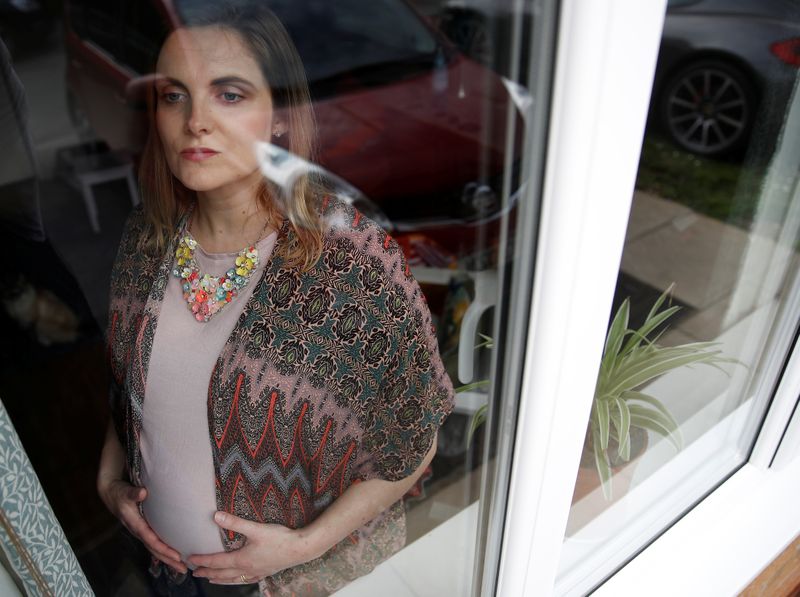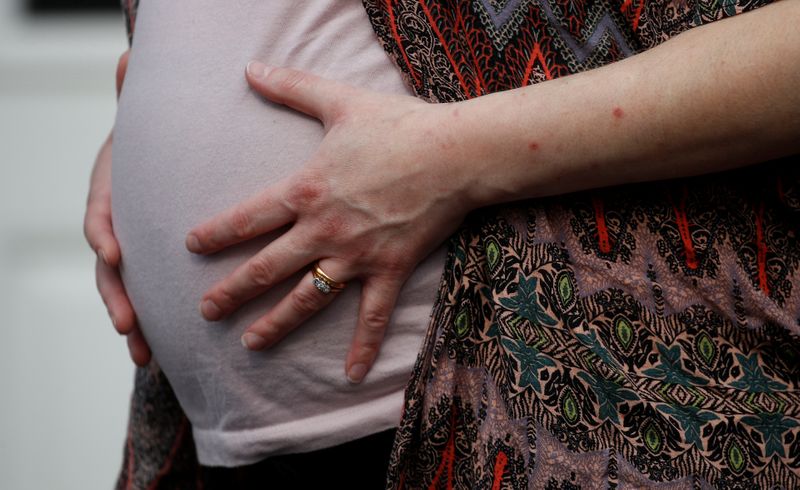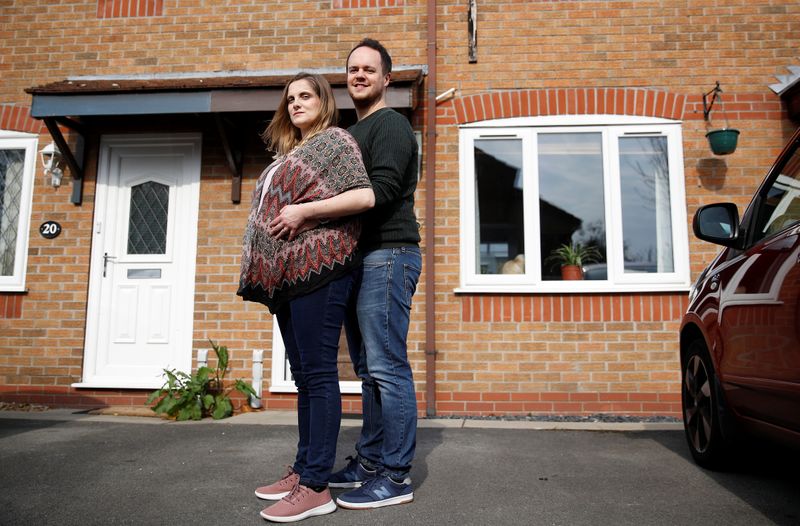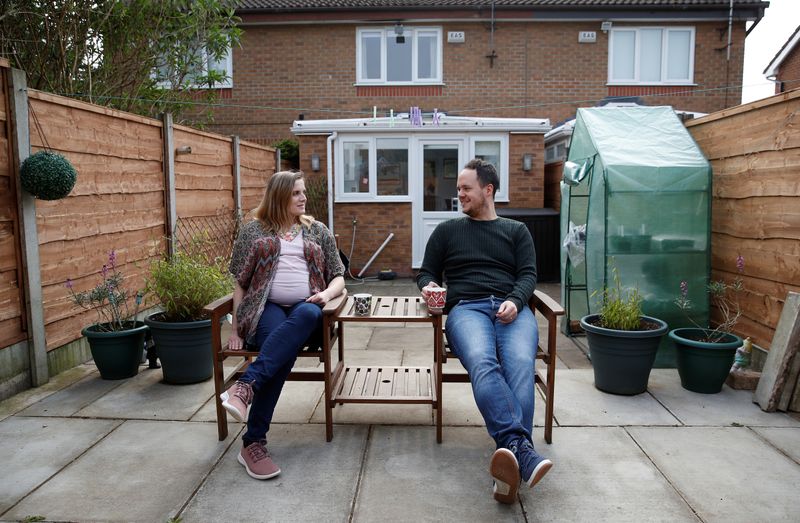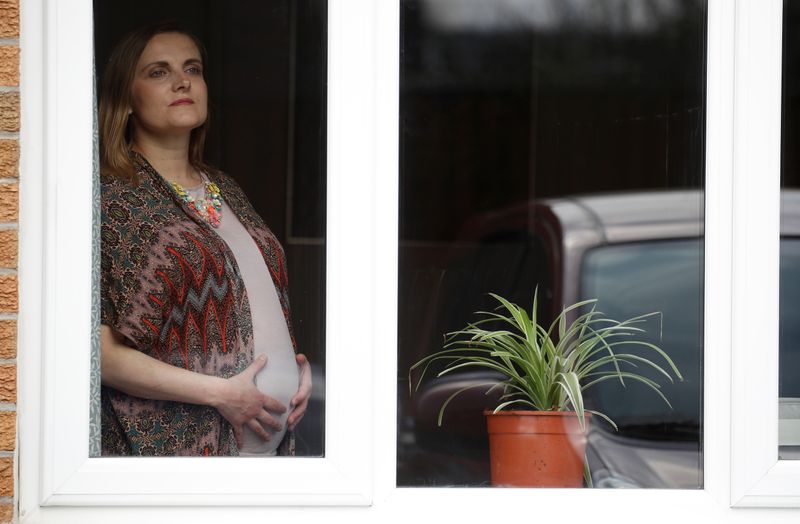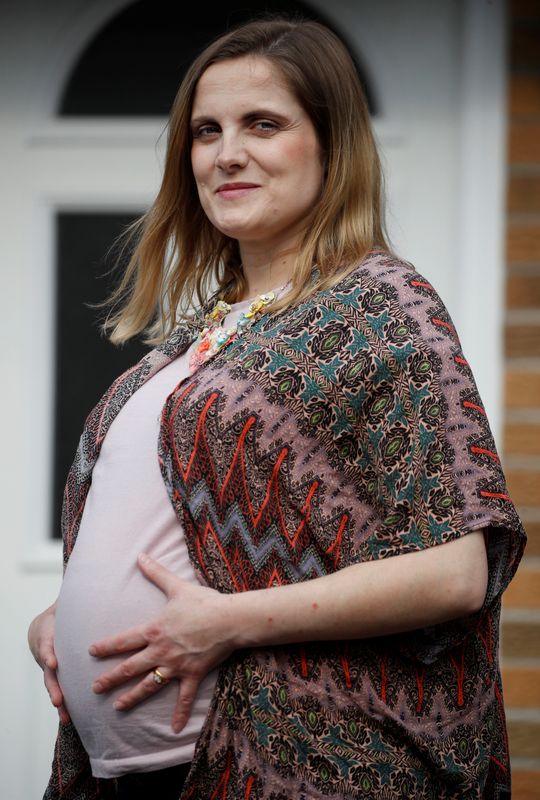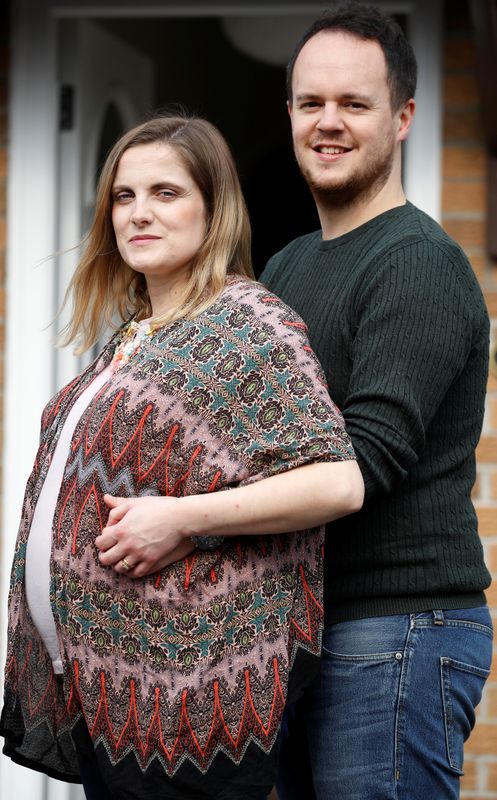LONDON (Reuters) – Kimberley Hutton went to hospital to have a baby in the middle of March, stayed for a week, and returned to a world completely changed.
While the 26-year-old single mother was on the maternity ward, Britain had entered lockdown to limit the spread of the new coronavirus.
“We left and there were no cars on the road. There was no one walking on the street. It was really, really bizarre,” she told Reuters in an interview.
Hutton came home with her newborn son and no one could come and visit her to help out.
“It’s been really hard. I’m very lonely.
“Every time there’s something I think isn’t quite right, I can’t just pop him down to see the doctor, because I’m worried that he might be at risk of getting the coronavirus.”
As the virus sweeps across the country, the lockdown has changed all aspects of Britons’ lives, with social distancing rules enforceable by the police and hospitals pushed to the brink.
A new mother in Britain is usually assigned a health visitor, who comes to the home to offer advice and support as she recovers from the birth and learns how to care for her baby. Hutton said this had been replaced by phone calls.
The British government has categorised pregnant women as being at increased risk from COVID-19, meaning that they are advised to self-isolate most of the time.
In these nerve-wracking times, they are nevertheless still advised to attend antenatal appointments. Any fewer than five of those would put a baby’s health at risk, according to the Royal College of Obstetricians and Gynaecologists, a professional body.
Currently, birthing partners are allowed to be there during the birth itself, but there are coronavirus-imposed restrictions on the wards where women stay afterwards, meaning that fathers may miss out on the first hours with their child.
Stephanie Bowers is eight months pregnant and worried that she won’t be able to have her husband with her during the birth.
“As a soon-to-be first-time mother, everything about it is so unknown,” Bowers said.
Her husband has made playlists for her and recorded himself saying encouraging things in case he is not allowed to accompany her in person.
But with everything from meetings to lessons and birthday parties to pub quizzes taking place over video call, even preparation for childbirth can be done virtually.
The National Childbirth Trust (NCT) has moved its antenatal classes online, with parents making use of whatever they have to hand, practising putting nappies on cuddly toys for example.
“This is a time of great uncertainty when everyone’s feeling really challenged and vulnerable,” said Val Wilcox, an NCT course leader. “The resourcefulness of parents at the moment, of everybody, is extraordinary.”
(Writing by Elizabeth Howcroft, editing by Estelle Shirbon)

